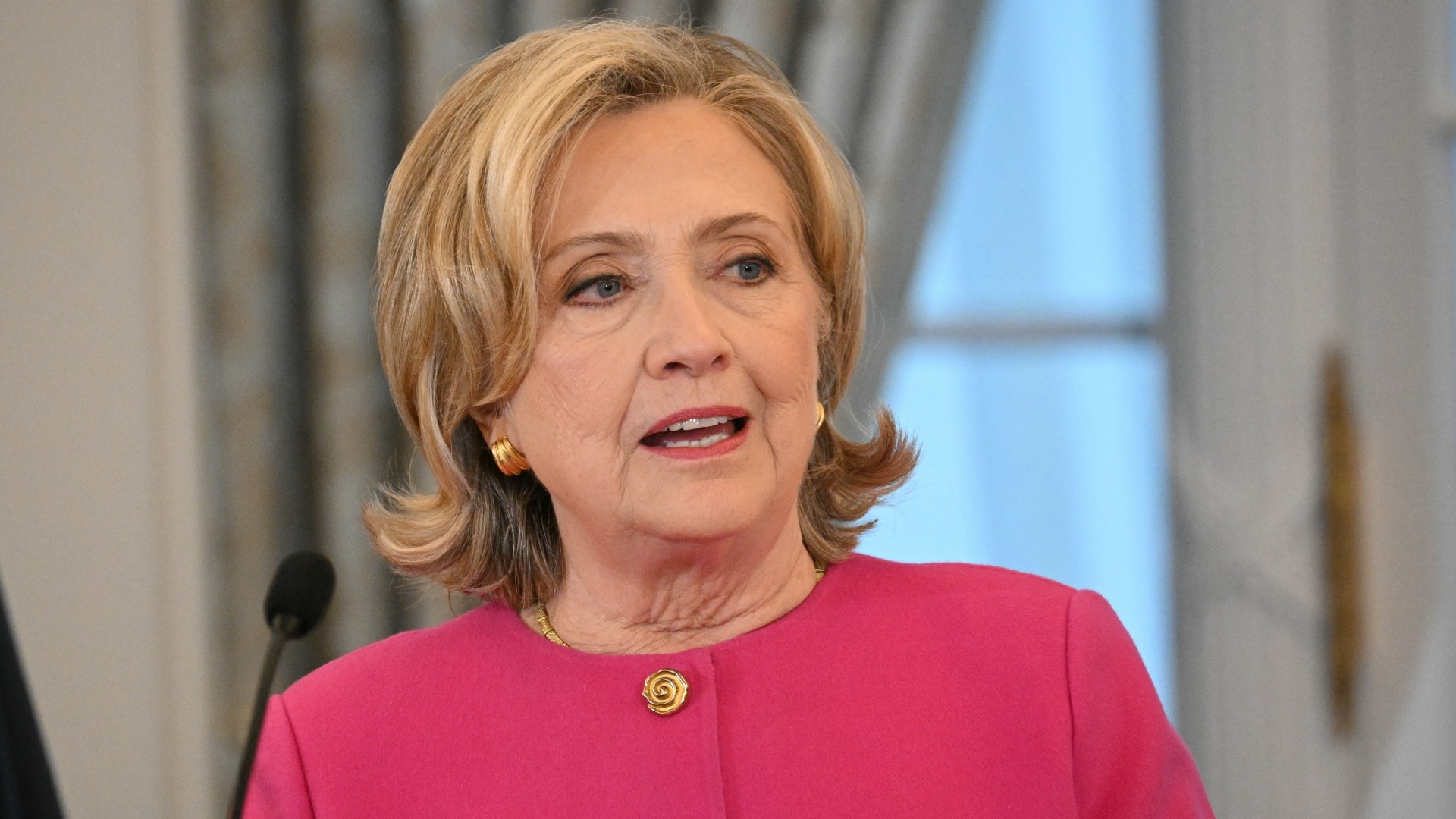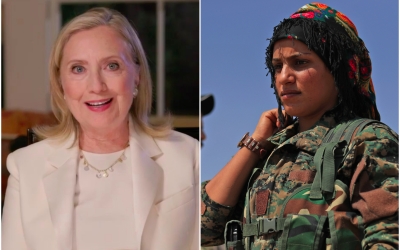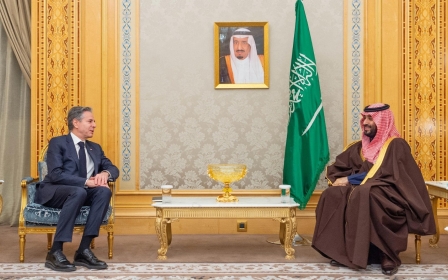War on Gaza: Hillary Clinton says Netanyahu 'absolutely needs to go'

Former US secretary of state Hillary Clinton has said that Israeli Prime Minister Benjamin Netanyahu "should go" over his handling of the war in Gaza.
The former presidential candidate and first lady, speaking during an interview on MSNBC’s Alex Wagner Tonight, blamed Netanyahu for the oversights that led to the Hamas-led attack on 7 October.
"Netanyahu should go. He is not a trustworthy leader. It was on his watch that the attack happened," Clinton said on Wednesday, referring to the assault on military bases and civilian communities in southern Israel, which killed around 1,140 people.
"He needs to go, and if he’s an obstacle to a ceasefire, if he’s an obstacle to exploring what’s to be done the day after, he absolutely needs to go,” she added.
More than 27,708 Palestinians have been killed and over 67,000 wounded by Israel's subsequent bombardment in Gaza.
New MEE newsletter: Jerusalem Dispatch
Sign up to get the latest insights and analysis on Israel-Palestine, alongside Turkey Unpacked and other MEE newsletters
Asked about the ongoing war, Clinton laid blame on Hamas, and defended Israel's actions.
"We wish there was a ceasefire. If Hamas would agree to a ceasefire, there would be a ceasefire," Clinton said, on the same day that Netanyahu rejected a wide-ranging ceasefire proposal put forward by Hamas.
“Look what Russia has done to Ukraine, destroying hospitals, schools, levelling whole cities, kidnapping children. It’s horrible. When you’re the aggressor, as Hamas was on 7 October, or as Russia was in February 2022, what do you do with an aggressor? You have to stop them,” the former secretary of state added.
She said Hamas was "not doing anything to protect Palestinians" being killed by Israel's military campaign.
Netanyahu rejects Hamas deal
Earlier on Wednesday, several news outlets, including Middle East Eye, said they had seen Hamas's proposed three-stage ceasefire plan.
According to the draft document, all Israeli women, children under 19, the elderly and sick would be released from Gaza during the first 45-day phase in exchange for the release of all Palestinian female, children, sick and elderly prisoners over 50 years old from Israeli jails.
In addition, Israel would release 1,500 Palestinian prisoners, including 500 with life sentences.
The first stage would also see Israeli forces withdraw from populated areas of Gaza, allowing freedom of movements for Palestinians across the Gaza Strip, including the return of displaced people from south to north. Additionally, the United Nations would be permitted to set up tent encampments.
This phase would also see the cessation of all forms of air activity over Gaza, including reconnaissance, for the duration of the period.
The proposal called for "a temporary cessation of military operations, a cessation of aerial reconnaissance, and a repositioning of Israeli forces far outside the populated areas in the entire Gaza Strip".
During the second phase, all Israeli male hostages, including soldiers, would be released in exchange for a number of Palestinian prisoners to be determined at a later time.
And in the third phase, the remains of those captives who have died would be exchanged. By the end of the third phase, Hamas would expect the sides to have reached an agreement on an end to the war.
Netanyahu rejected the deal later on Wednesday, and said Israel would continue its military campaign until it had secured "total victory".
Middle East Eye delivers independent and unrivalled coverage and analysis of the Middle East, North Africa and beyond. To learn more about republishing this content and the associated fees, please fill out this form. More about MEE can be found here.





